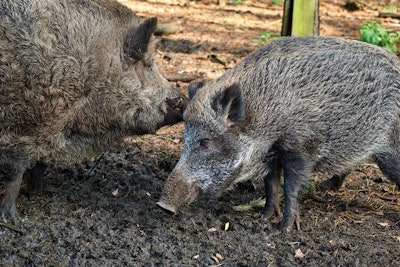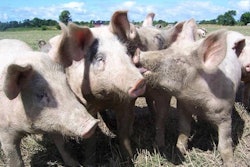
Since the Chinese authorities reported the first cases of African swine fever (ASF) in Liaoning province in August 2018, the disease has spread widely within China, and to other states in Asia — Cambodia, Laos, Mongolia, Myanmar and Vietnam — as well as to Europe and South Africa.
Among the countries where ASF has already spread widely is Vietnam. Outbreaks of the disease since the first cases were recorded in February have occurred in 62 provinces and cities, and approximately 3.7 million of the nation’s pigs have been culled, according to the United Nations’ Food and Agriculture Organization (FAO).
From now on, official reports of new ASF cases to the World Organisation for Animal Health (OIE) from Vietnam’s agriculture ministry will cover clusters of outbreaks in a province or city region rather than individual outbreaks.
In the past week, the ministry has retrospectively logged with the OIE 194 ASF outbreaks that occurred between February 27 and March 5. Affecting more than 126,000 pigs, the outbreaks occurred as a cluster numbering 111 in Ha Nam province in the Red River Delta region, and 83 in Dien Bien, which is in the Northwestern region and borders Laos and China.
ASF jumps to northern Laos
Local media in Laos have reported a new ASF outbreak in the northernmost province of Phongsali. According to Xinhua, the disease was found after 338 pigs belonging to two villages in the Khua district died, and officials have also detected the virus in an unknown number of animals in the district of Bounneua. Previously, ASF has been detected in the country’s southern provinces of Salavan and Savannakhet, and near the capital city, Vientiane.
How the infection jumped to Phongsali is unclear, but the province shares borders with Yunnan in China, and the Vietnamese province of Dien Bien, where many ASF outbreaks have occurred.
Cambodia has reported no new ASF outbreaks to the OIE in the past week, so the country’s total outbreaks remains at six since the first cases at the end of June, based on official reports.
Quarantine restrictions have been lifted in China’s Guizhou province, reports the agriculture ministry, after a previous ASF outbreak in Duyuan city in Qiannan prefecture. No signs of the virus had been detected in the six weeks after depopulation of the infected animals.
For North Korea, the FAO has identified ASF — along with drought — as the two major factors threatening food security, reported Yonhap recently. FAO is forecasting “sizeable production decreases” in North Korean pig meat production.
ASF-free nations ramp up disease control measures
State government of Sarawak — part of Malaysia — has warned pig producers to increase biosecurity on their farms, and to cease feeding their animals leftover food in order to reduce the risk of the spread of ASF, reports Malay Mail.
Last week, it was reported that a traveler from Vietnam had been arrested on entry to Japan for illegally bringing ASF-infected pork into the country.
The pig industry association in the United Kingdom (UK), the National Pig Association (NPA), has called on the government to provide more tangible evidence of its activities for the prevention of ASF.
Just two sniffer dogs for the detection of meat in passengers’ luggage for the whole country are clearly insufficient, according to NPA Chief Executive Zoe Davies, when illegally imported meat is one of the most likely routes for the virus to enter the country.
Davies’ comments came after fragments of the ASF virus were detected among 300 kilograms of illegal meat and dairy products seized from passengers entering Northern Ireland — part of the U.K. — during June, and ahead of expected high numbers of incoming passengers from Asia as well as central and eastern Europe for summer vacations and studying.
View our continuing coverage of the African swine fever outbreak.
















